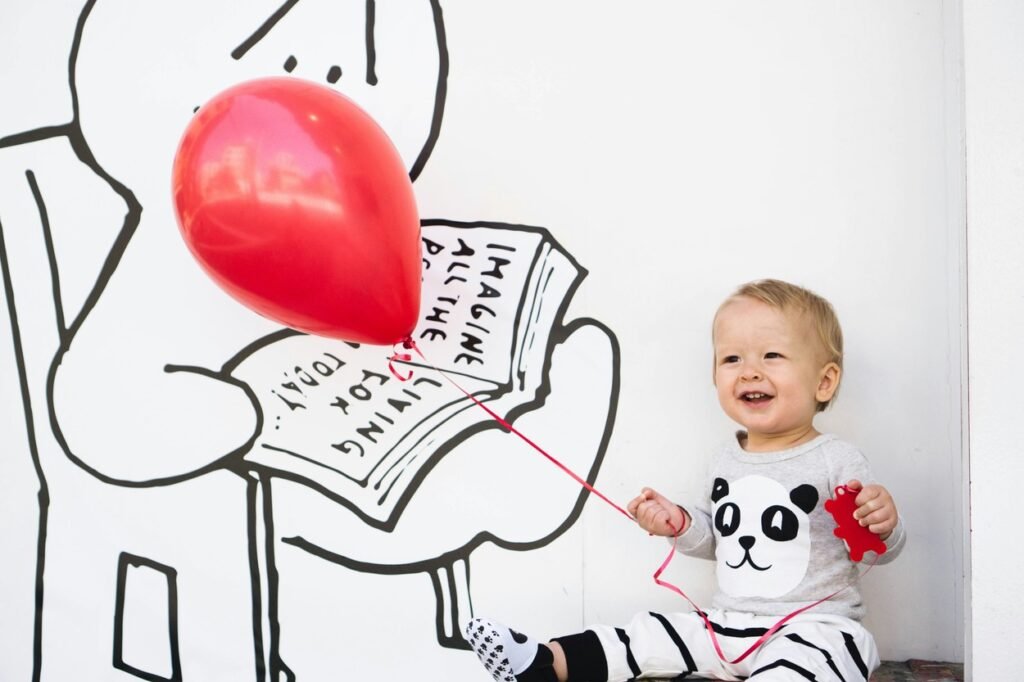Toddler tantrums—the rite of passage for every parent. If you’ve ever found yourself in the middle of a grocery store with a tiny human sprawled on the floor, wailing like a banshee, and questioning your life choices, you’re not alone.
But let’s take a step back, breathe, and ask ourselves: Are toddler tantrums normal? Spoiler alert: Yes, they are! And let me tell you why.
What Exactly Is a Toddler Tantrum?
First things first, let’s define the beast we’re dealing with. A toddler tantrum is a sudden outburst of anger, frustration, or distress in a young child, usually between the ages of one and three. These episodes can involve crying, screaming, kicking, hitting, and sometimes even holding their breath. They’re not pretty, but they’re a completely natural part of a toddler’s development.
Picture this: Your two-year-old just had a long day of exploring, learning, and probably being told “no” about fifty times. Now, they want to express their feelings about it all—loudly. Unfortunately, they haven’t quite mastered the art of communication, so they express their emotions in the most primal way possible: a full-blown tantrum.

The Science Behind the Screams
Why do toddlers have tantrums, you ask? Well, it’s all about brain development. Toddlers are in the throes of learning to navigate a world that’s new and often overwhelming to them. They’re experiencing emotions they don’t fully understand yet, and they lack the verbal skills to express these feelings in a more civilized manner (like we do when we rant to a friend over coffee).
The toddler’s brain is still under construction, particularly the prefrontal cortex—the part responsible for self-control, problem-solving, and managing emotions. This part of the brain won’t fully mature until their mid-twenties (yep, it’s a long journey). So, when your little one is frustrated because they can’t fit the square block into the round hole, their brain just doesn’t know how to cope, leading to—you guessed it—a tantrum.
Why Tantrums Are (Mostly) a Good Thing?
Believe it or not, tantrums are a sign that your toddler is growing and developing just as they should. It’s a little like when they start walking and bump into everything; it’s frustrating (and sometimes painful), but it’s a necessary part of learning how to move around the world.
Here’s why tantrums are a good thing:
- Emotional Development: Tantrums help toddlers learn to identify and express their emotions. Sure, they’re not doing it in the most graceful way, but it’s a start.
- Independence: When your toddler throws a fit because they want to put on their shoes by themselves, they’re asserting their independence. It’s their way of declaring, “I’m growing up!”
- Communication Practice: Even though a tantrum is a less-than-ideal form of communication, it’s still a form of communication. Over time, with your guidance, they’ll learn better ways to express themselves.
So next time your toddler is rolling on the floor because you cut their sandwich into triangles instead of squares, take a deep breath and remind yourself: This is all part of the process.

How to Survive Toddler Tantrums (Without Losing Your Mind)?
Okay, now that we know tantrums are normal (and even beneficial), how do we deal with them? Here are some tips to help you navigate these stormy seas:
- Stay Calm: This is easier said than done, especially when you’re in public and feel like all eyes are on you. But staying calm is crucial. Your toddler is looking to you for cues on how to react, so if you’re calm, they’re more likely to calm down, too.
- Acknowledge Their Feelings: Even if the reason for the tantrum seems ridiculous (like refusing to wear pants), it’s important to acknowledge your child’s feelings. Say something like, “I see you’re really upset because you like to wear your pyjamas to the park. That sounds frustrating.”
- Distraction: Sometimes, all it takes is a little distraction to pull them out of their meltdown. Try redirecting their attention to something else—“Hey, look at that funny dog!” or “Let’s go see what’s in the fridge for a snack.”
- Pick Your Battles: Not every situation warrants a battle of wills. If your toddler wants to wear mismatched socks or insists on bringing a toy to the dinner table, ask yourself, “Does this really matter?” Sometimes, it’s easier (and more peaceful) to just go with the flow.
- Consistency is Key: Set clear and consistent boundaries so your toddler knows what to expect. If they know that bedtime is always at 7:30 p.m., they’re less likely to throw a fit when it’s time to go to bed.
- Teach Coping Skills: As your child gets older, start teaching them ways to cope with their emotions. This might include deep breathing, counting to ten, or using words to express their feelings.
When Should You Worry?
While tantrums are a normal part of toddlerhood, there are times when they can be a cause for concern. If you notice any of the following, it might be worth having a chat with your paediatrician:
- Tantrums that are excessively violent or harmful: If your child is consistently hurting themselves or others during tantrums, this could be a sign of a deeper issue.
- Tantrums that last a long time: Most tantrums are short-lived, but if your child’s meltdowns last more than 15-20 minutes on a regular basis, it could be worth investigating further.
- Tantrums that continue past toddlerhood: While it’s normal for older children to have the occasional meltdown, frequent tantrums after the age of 4 or 5 could indicate that your child is struggling with emotional regulation.
- Other developmental concerns: If your child is having frequent tantrums alongside other concerns (such as delays in speech, social interactions, or motor skills), it’s important to discuss these with your paediatrician.

Conclusion: Embrace the Chaos
In the end, toddler tantrums are a perfectly normal, if not slightly exasperating, part of raising a tiny human. They’re learning how to navigate their big emotions, and while that process isn’t always smooth (or quiet), it’s essential for their development.
So the next time your toddler is on the floor, wailing because you won’t let them eat dog food, remember: This too shall pass. And one day, you’ll look back on these tantrum-filled days and laugh—or at least that’s what people with older kids tell me.
Until then, stock up on coffee, patience, and maybe some noise-cancelling headphones. You’ve got this!
